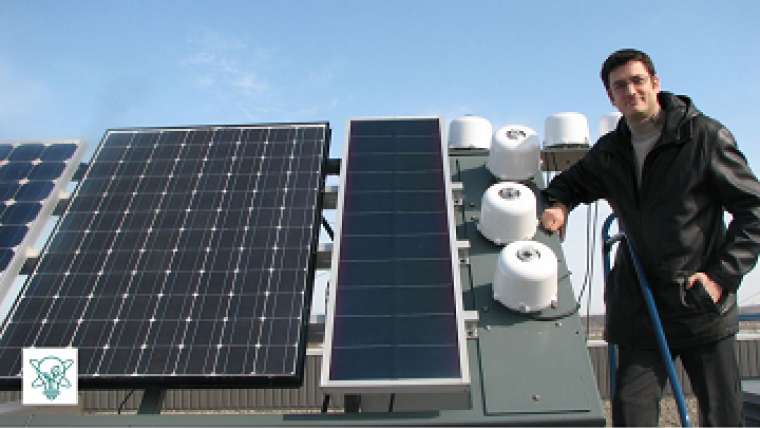The future of home heating: Hybrid home heating systems offer energy savings and reduce GHG emissions
April 2019
By Leila Lemghalef with Jeremy Sager, CanmetENERGY-Ottawa
In the hot summer months, optimizing your home heating system is probably the last thing on your mind. But they’re the perfect time to think about it. And they’re also the perfect time for Natural Resources Canada (NRCan) researchers to crunch the numbers, especially after spending a cold winter measuring energy use and comfort levels in a series of test homes using hybrid heating — the combination of a natural gas furnace with an electric air source heat pump.
It was cold but it was time well spent, since researchers from CanmetENERGY–Ottawa have identified hybrid heating as one way to save energy, reduce greenhouse gas (GHG) emissions and build Canada’s resilience to a changing climate and changing energy prices.
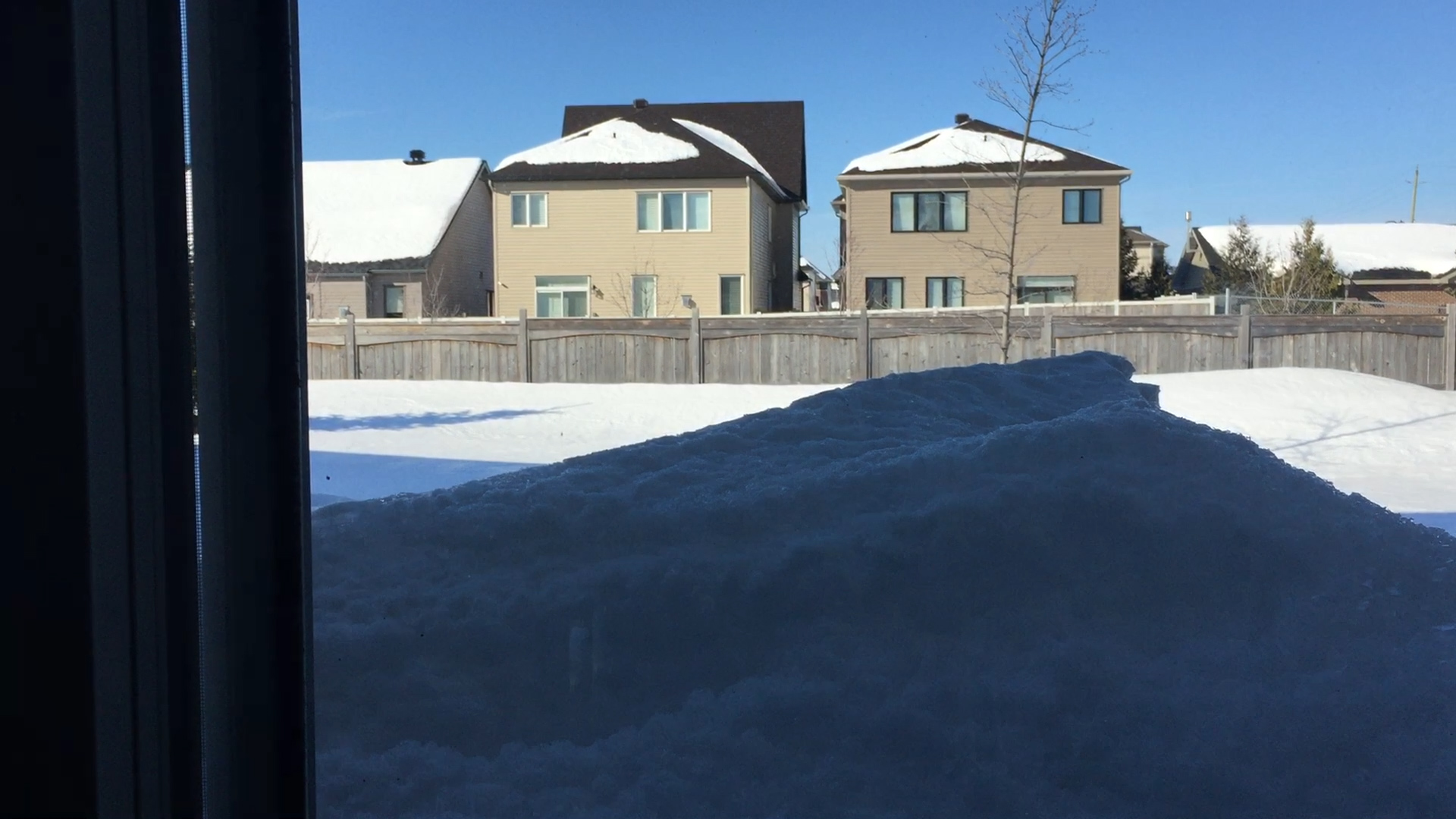
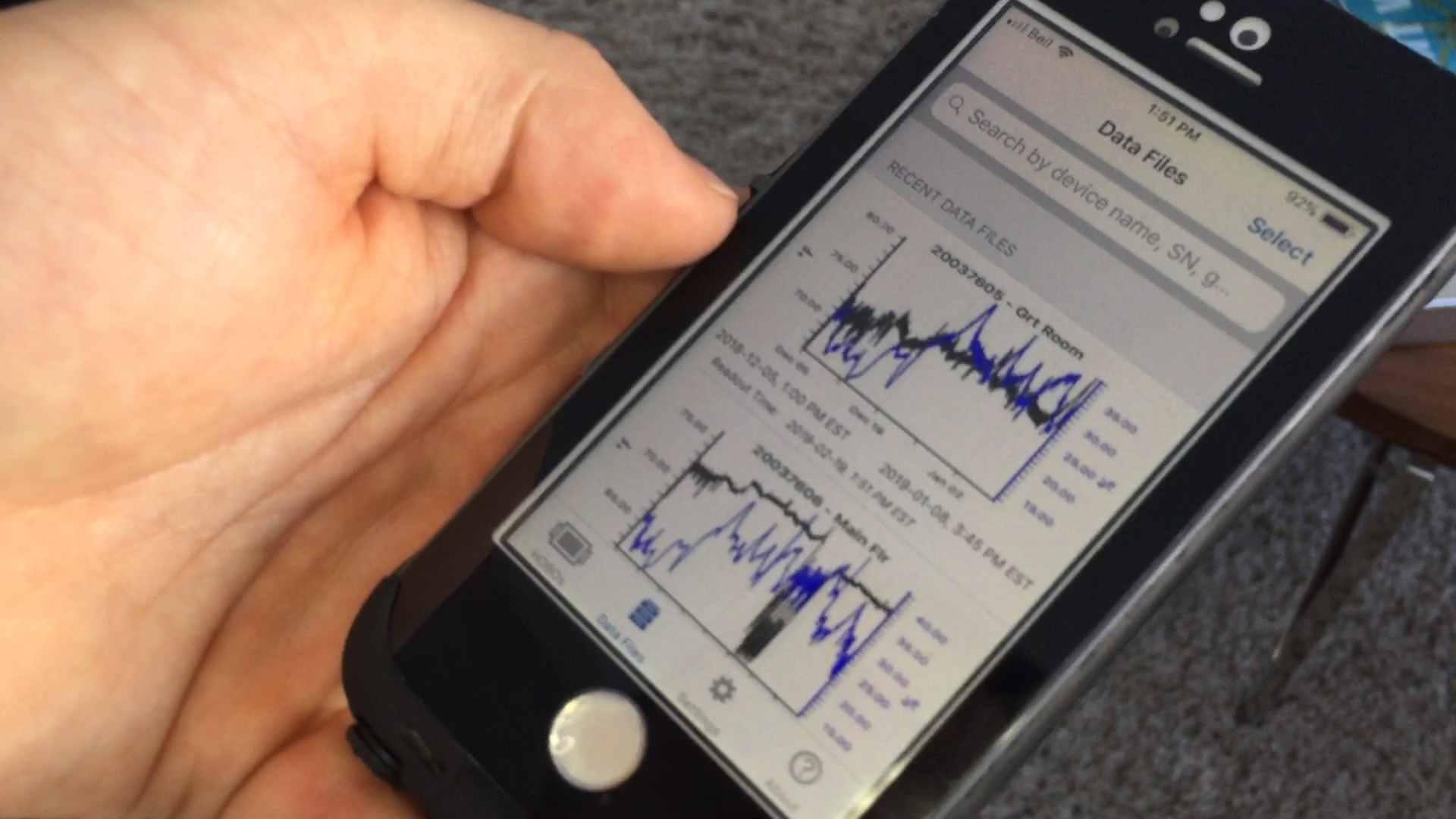
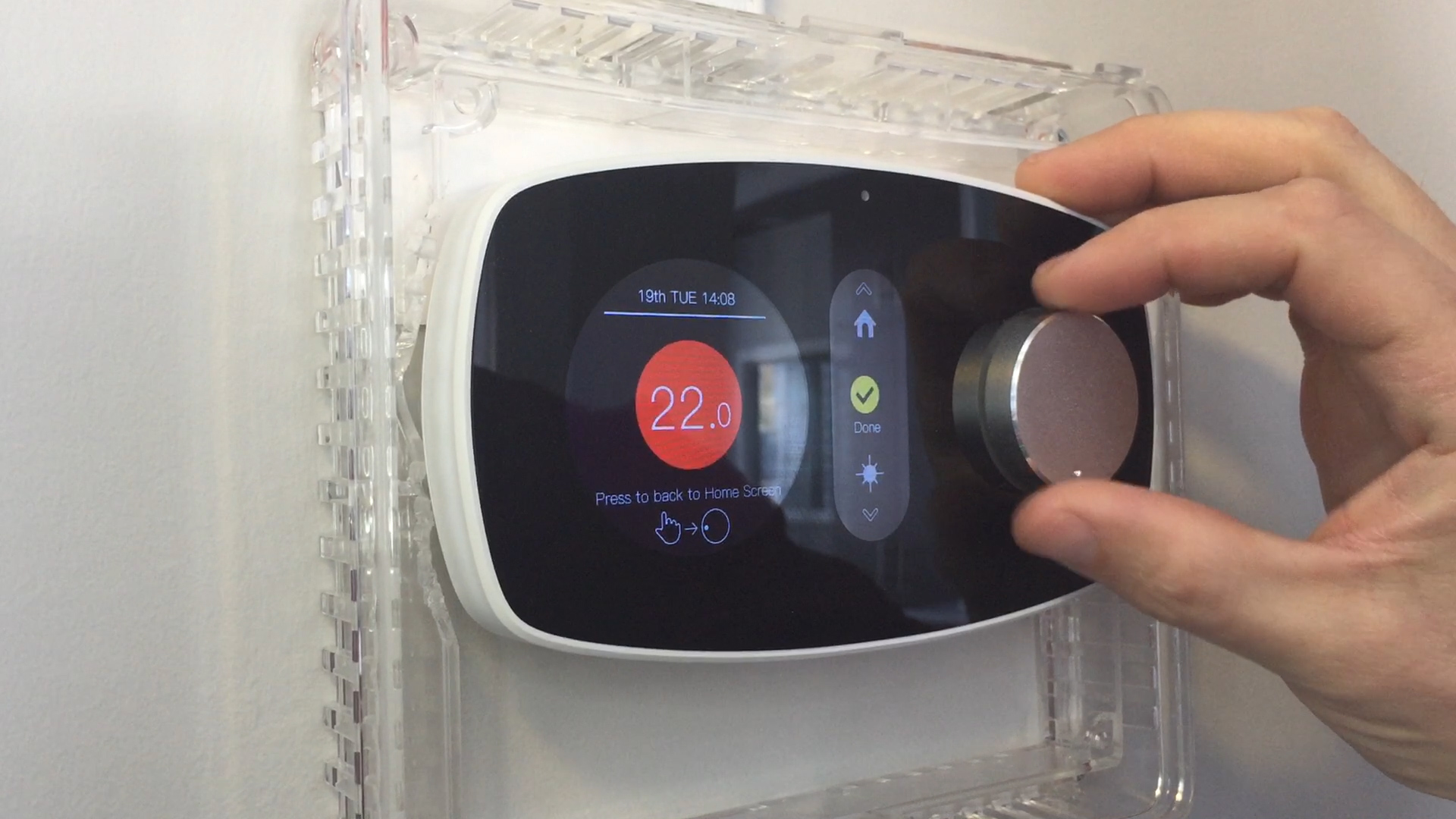
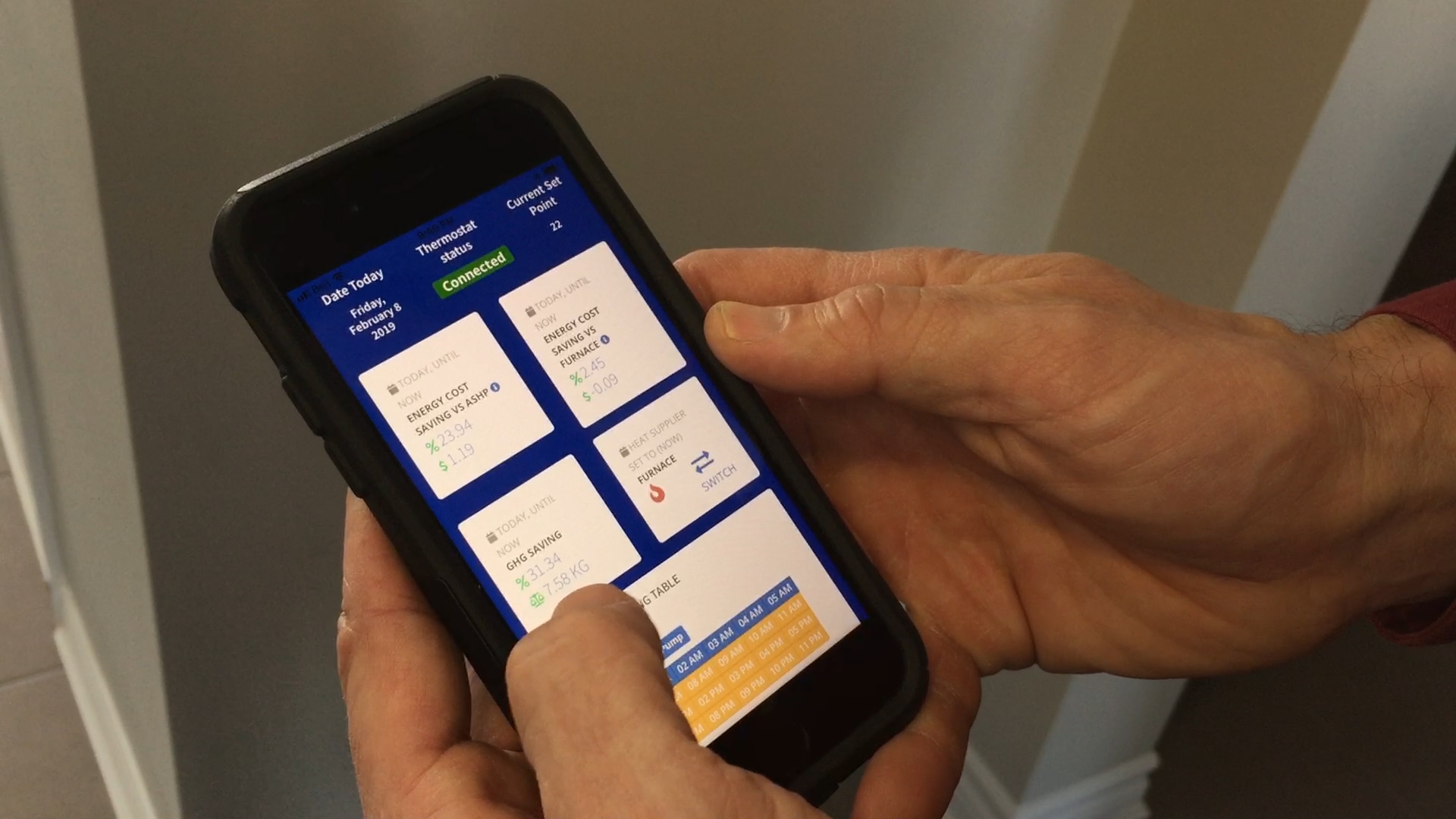
NRCan researchers measured a 30 percent drop in GHG emissions in one complete heating season.
Student Alexandre Bouchard and NRCan research engineer Jeremy Sager visit a test house near Ottawa.
“Our role is recognizing the potential, recognizing the opportunity,” says research engineer Jeremy Sager, whose focus is on the residential sector. “We’ve done research on air source heat pumps for several years now, and we started thinking about the possibility of replacing an air conditioner with a heat pump. When a person’s aging air conditioner needs to be replaced, what if it was switched with a heat pump? That way, the heat pump could do some of the heating and save energy.”
Make the switch to save energy
So they set out to find answers. And this past spring Jemery and his colleagues finished monitoring three model homes equipped with hybrid heating systems in a new housing development east of Ottawa. Their early findings show that energy savings are substantial. Over the complete heating season, they tracked a 30 percent reduction of GHG emissions for the hybrid system with smart switching controls versus the natural gas furnace alone.
“During one particularly cold day, there were 7.58 kilograms of CO2 emissions reduced while the heat pump ran from 12 a.m. to 6 p.m.,” says Jeremy.
Space heating: the biggest energy end-use in Canada
These energy savings are especially significant when you consider that space heating accounts for more than 60 percent of the energy consumption in the average Canadian home. What’s more, space heating is the single biggest energy end-use in Canada and the country’s second-largest contributor to GHG emissions.
Hybrid heating reduces energy consumption and GHG emissions by relying on the heat pump at moderate outdoor temperatures and during off-peak times, when it is cheaper to heat with the heat pump. Then the system switches to a natural gas furnace in cold temperatures and at peak times.
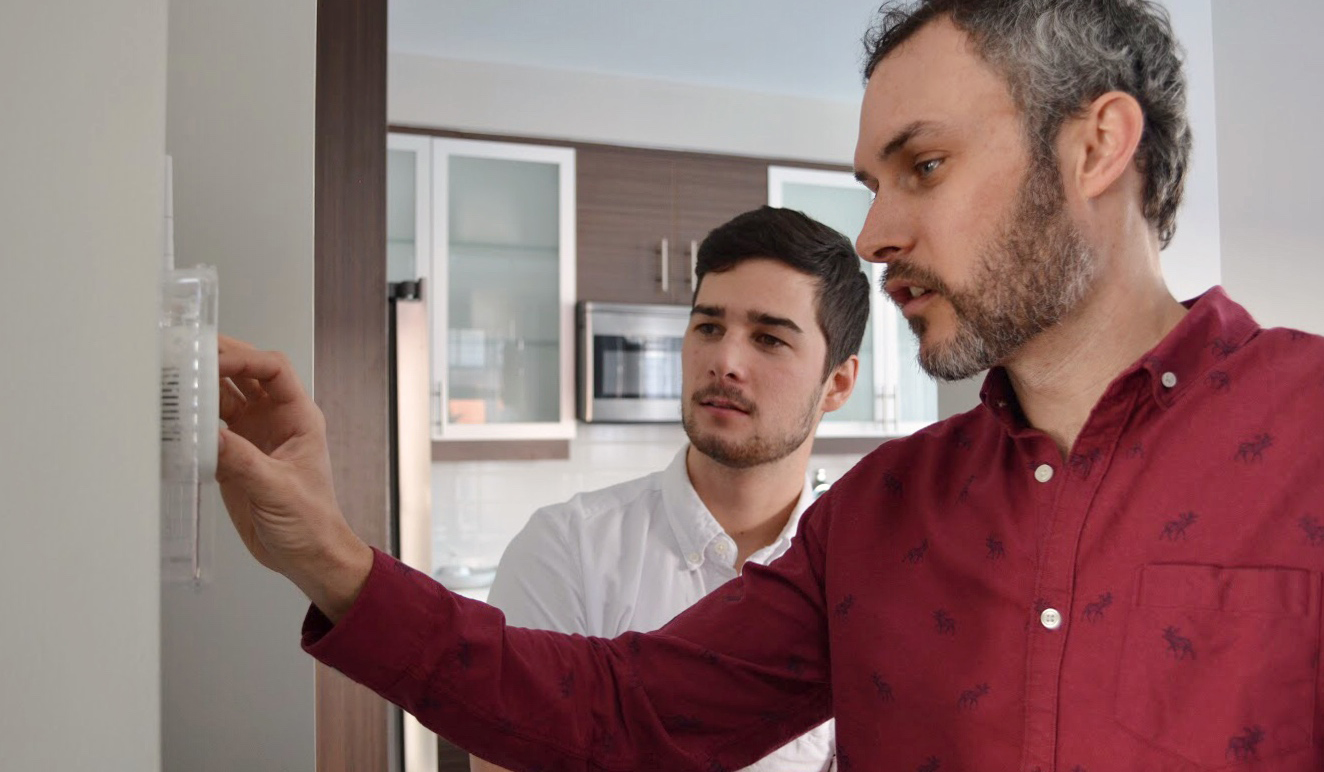
See how Jeremy and his team measure energy savings and comfort levels in a test
house equipped with a hybrid heating system in this YouTube video
Transcript
Jeremy Sager:
I’m Jeremy Sager. I’m a research engineer at CanmetENERGY Ottawa in Bells Corners. And my role is to assess the performance of different, more energy-efficient heating ventilation and air conditioning systems. Today, we’re checking data together with Alexandre, our CO-OP student. We’re checking the data from the systems, making sure everything’s working as expected.
Alex is checking — for example, right now, he can log into these sensors, and then he can see the data from the sensors on his phone.
Alexandre:
So the loggers collect data every five minutes, and the last time I came to collect data was three weeks ago. So do the math: five minutes for three weeks — that’s a lot of data. So it takes a couple of minutes for my phone to collect everything. And then it generates a mini-graph, which we can see right here. And then I export that to Excel, and I send that to the office, and we can analyze that at the office.
Jeremy:
We’ve done research on air-source heat pumps for several years now, and so we’ve started thinking: Well, what about the possibility of replacing an air conditioner with a heat pump so when your air conditioner gets old, the heat pump can do some of the heating and save energy. So that’s what we did in this house.
And then we started to look at the energy consumption and comfort impact. So this is one type of air source heat pump for a hybrid system outdoor unit. It’s side-discharge, so it draws air in from the side and blows air out the front. So if it’s snowing or there’s freezing rain, that’s going to land on top of the unit and not impact the air flow of the unit. Once it gets above minus eight outside, and if it’s off-peak, then it’s going to switch to the heat pump.
There’s also a phone app for this. And the phone app tells you what the system has been doing over the last 24 hours, what it’s going to do over the next 24 hours, how much energy savings there were and whether there was greenhouse gas reductions. This is the system on February 8, and we can see that the greenhouse gas emissions reductions were 30 percent for that day and there was eight kilograms — well, 7.58 kilograms — of CO2 reduced, and it ran the heat pump from 12 am to 6 am.
We’re expecting greenhouse gas emissions reductions of 20 percent or better, and that really depends on location and what you set your thermostat to. But that’s ballpark what we expect from this approach.
Turning smart controls into smart energy savings
This is all done by using Wi-Fi–enabled smart switching controls that automatically send a signal to the system to switch to the furnace or the heat pump, depending on the least expensive mode of operation at the time. The smart system takes into account various factors: natural gas and electricity prices, time of use, outdoor air temperatures, performance of the natural gas furnace and performance of the heat pump.
Electric air source heat pumps are designed to provide efficient space cooling as well as space heating. They can be retrofit and work with any fossil fuel furnace or combination system powered by natural gas, propane or oil.
Environmental benefits and economic savings
In Canada, 35 percent or 5.1 million homes are currently heated with natural gas furnaces in areas with low-cost natural gas and higher-cost electricity, such as Ontario. Hybrid systems present a cost-effective method of reducing GHG emissions in these homes.
NRCan’s contributions to the implementation of gas hybrid systems in Ontario and Canada were recently recognized by Better Builder magazine. The magazine pointed out that a carbon tax would not in itself be sufficient to change people’s reliance on natural gas furnaces as the primary source of heat
That’s where hybrid systems come in. Incorporating an electric air source heat pump to help reduce reliance on natural gas for space heating can make sense economically and environmentally. In Ontario, the operating cost of a hybrid system is similar to that of a natural gas furnace heating system. There are modest utility bill savings for moderate outdoor temperatures and off-peak time of use. Homeowners ready to replace an aging air conditioner can consider replacing it with an electric air source heat pump designed to provide efficient space cooling as well as space heating.
Hybrid systems are not new equipment, but they are still emerging on the market and becoming more widely available. To enhance market uptake, CanmetENERGY and NRCan’s Office of Energy Efficiency are collaborating with manufacturers of equipment, thermostats and controls to optimize the performance of hybrid heating systems. Some of the data and analysis the CanmetENERGY team collected at their test site this winter will be included in a report of use to utilities, manufacturers, designers, the housing industry and policy-makers.
CanmetENERGY–Ottawa leads the development of energy S&T solutions for the environmental and economic benefit of Canadians.
Page details
- Date modified:

